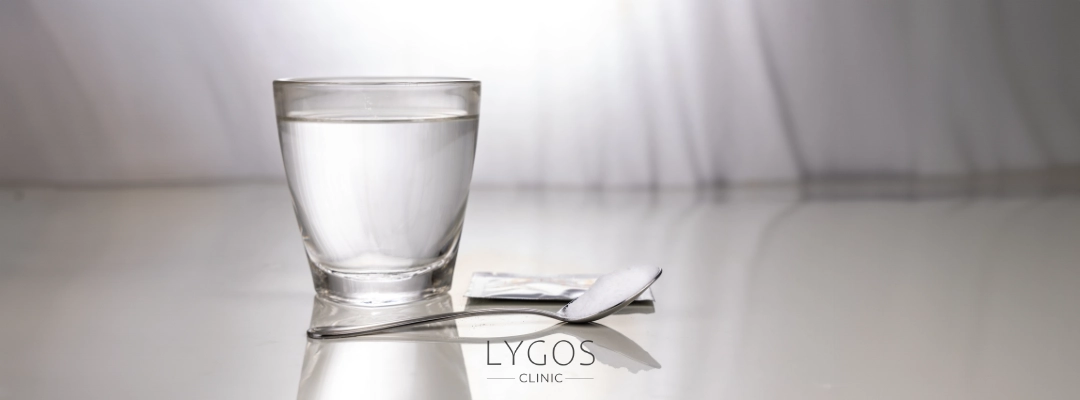Water Intoxication | Symptoms of Water Poisoning | LYGS 2025

Water Intoxication: Water Poisoning Symptoms
Water intoxication is a serious condition that occurs when blood sodium levels drop dangerously low as a result of the body taking in much more water than it needs. This excess causes the body to be unable to eliminate excess water naturally – through sweating or urine – leading to chemical imbalances.
The most common symptoms of water intoxication include nausea, vomiting, abdominal bloating, headache and a general feeling of weakness. Excessive water consumption can be fatal without timely intervention. It is therefore vital to stop water intake immediately and seek medical attention if these symptoms are experienced.
What is Water Intoxication?

Water intoxication is a condition caused by excessive water intake, leading to a disturbance of the electrolyte balance in the body. This condition is characterized by hyponatremia, which causes sodium levels in particular to drop. The accumulation of excess water in the body leads to dilution of the blood, causing swelling in the cells. This swelling, especially when it occurs in brain cells, can increase pressure on the brain, affecting its functionality.
The effects of water intoxication are not limited to the brain; it can have negative effects on many organs. Common symptoms associated with excessive water intake include nausea, vomiting, abdominal bloating, headache, drowsiness, muscle weakness and muscle aches. If you have consumed too much water during the day and are experiencing these symptoms, you should remember that you are at risk of water intoxication.
In case of water intoxication, the first step is usually to stop consuming water for a while. Depending on the situation, diuretic drugs or intravenous fluids may also be required. Such treatment methods are important to restore the body’s electrolyte balance. Given the seriousness of water intoxication, it is critical to seek medical attention when symptoms occur.
What Causes Water Intoxication?

Water intoxication, also known as water toxicity, is a condition that occurs when the body’s electrolyte balance is disrupted and sodium levels drop due to excessive water intake. It is important to note that under normal circumstances, water consumption does not pose any risk of poisoning, but problems arise when the body takes in much more water than it needs. There are several factors that can cause water intoxication.
The first of these factors is consuming more water than the body needs. This can be triggered by working in extremely hot environments, intense physical activity or overfilling the body with water during sports. A low-sodium diet, impaired kidney function and irregularities in the ADH hormone can also lead to water intoxication. Psychogenic polydipsia, i.e. excessive desire to drink water for psychological reasons, can exacerbate this condition.
In addition, some health problems that make it difficult for the kidneys to excrete excess water also increase the risk of water intoxication. Conditions such as chronic kidney disease, liver disease and congestive heart failure can disrupt the body’s water balance. Non-steroidal anti-inflammatory drugs, some antidepressants and antipsychotic drugs can also affect this condition. As a result, water intoxication is a serious condition that needs attention. While it is important to meet the body’s water needs, it is also critical not to overdo it and to take into account the state of health.
What are the Symptoms of Water Intoxication?

Water intoxication manifests itself with various symptoms as a result of disruption of the water and sodium balance in the body. This condition can occur when excessive water intake stresses the body and in some cases can have serious consequences. So, what are the symptoms of water intoxication?
1.Headache Excessive water consumption can cause headaches. This can occur as an indication that fluid balance is disturbed in the body.
2.Nausea and Vomiting Nausea and vomiting are common in people with water intoxication. These symptoms can be interpreted as the body’s attempt to expel excess fluid.
3.Muscle Cramps and Weakness Low sodium levels can lead to muscle cramps and general weakness. This can become uncomfortable, affecting the proper functioning of the muscles.
4.Confusion and Drowsiness Electrolyte imbalance can affect cognitive functions. Therefore, individuals suffering from water intoxication may experience confusion, drowsiness and drowsiness.
5.Seizures and Coma Excessive water intake can cause swelling of brain cells. This can lead to serious health problems, such as seizures or even coma.
6.Bloating and Weight Gain Excess water accumulating in the body can cause a feeling of bloating and sudden weight gain. These symptoms are the physical effects of a disturbance in the body’s water balance.
Water intoxication is a condition that can have serious consequences if care is not taken. It is of great importance for health to take immediate action when symptoms appear and to take the situation seriously. Keeping water intake in balance will help prevent such health problems.
How Does Water Intoxication Occur?

Water intoxication is a condition that occurs when the body is exposed to excessive water intake. This problem, which usually occurs when consuming more than 3-4 liters of water per day, brings along some disturbing symptoms. Symptoms of water intoxication include severe nausea, vomiting, bloating, headache and dizziness.
Such symptoms indicate that the body has difficulty maintaining water balance. The accumulation of excess water in the body can lead to electrolyte imbalance, affecting the normal functioning of cells. In particular, excessive water consumption can lead to swelling of the cells, which can lead to more serious health problems.
When water intoxication symptoms appear, it is extremely important not to underestimate the seriousness of the situation. Disturbances such as severe nausea and vomiting are the body’s attempt to remove excess water, and continued exposure can be life-threatening. It is therefore essential to contact a health professional when experiencing symptoms of water poisoning.
How Much Water Causes Water Intoxication?
Your body naturally eliminates excess water through urination, typically ranging from 32 to 64 ounces (approximately 1 to 2 liters) per day. However, for some individuals, consuming around a gallon (3 to 4 liters) of water within just an hour or two can lead to symptoms of water intoxication.
This condition arises when the balance of electrolytes in your body is disrupted, potentially causing serious health issues. Moderation is key when it comes to hydration, as even something as essential as water can become problematic if consumed in excessive amounts too quickly.
What is Good for Water Intoxication?

It is vital to intervene quickly when symptoms of water intoxication are recognized. You can consider the following methods to prevent imbalances caused by excessive water intake in the body:
Reduce Water Consumption The first step in case of water poisoning is to immediately reduce water intake. Avoid drinking more water than your body needs. Limiting your water intake until symptoms subside is critical to maintain balance.
Increase Salt Consumption It can be helpful to eat salty foods to balance sodium levels. However, care should be taken when taking this step; the healthiest approach is to make such a change in consultation with your doctor.
Rest Rest is very important to help your body regain its water and sodium balance. Give your body the opportunity to recover by avoiding intense physical activity. Rest supports the body’s natural healing process.
Seek Medical Help If the symptoms of water poisoning are severe or persist for a long time, you should consult a health professional. Your doctor will determine the appropriate treatment methods for your condition and provide support in the most appropriate way. Preventing water intoxication is an important part of a healthy lifestyle. Meeting the body’s water needs in a balanced way is the most effective way to prevent such problems.
Water Intoxication Treatment
The main goal of water intoxication treatment is to restore fluid balance and raise sodium levels by stopping excessive water intake in the body. This process is critical for the treatment to be successful. The use of drugs that cause intoxication should be stopped and treatment should be supported with diuretics or intravenous fluids if necessary.


